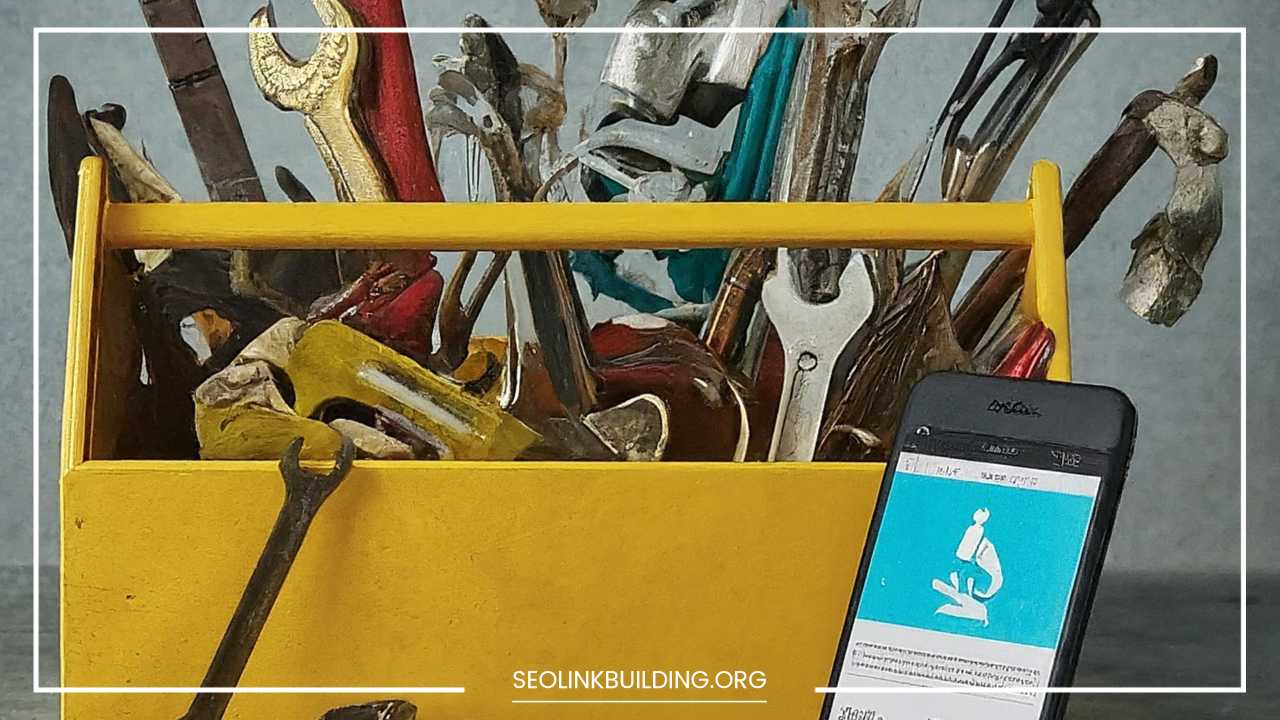Best Broken Link Checker Tools and Plugin

Broken Link Checker
Best Broken Link Checker Tools and Plugins: Keeping Your Website Healthy
Broken links are the gremlins of the website world – lurking in the shadows, waiting to frustrate visitors and damage your SEO. They create a jarring experience for users, disrupting their browsing flow and leaving them with a sense of neglect. But fear not, website warrior!
This comprehensive guide will equip you with the knowledge and tools to identify and banish broken links from your website forever.
The Devastating Impact of Broken Links
Before diving into solutions, let’s explore the far-reaching consequences of broken links:
- User Experience Nightmare: Imagine clicking an enticing link on a website, only to be met with a dreaded “404 Not Found” error page. This not only disrupts your browsing momentum but also reflects poorly on the website’s owner. Frustrated visitors are unlikely to return, and your brand reputation takes a hit.
- SEO Sinkhole: Search engines like Google prioritize websites that offer a seamless user experience. Broken links signal a lack of website maintenance and make it difficult for search engine crawlers to navigate and index your content. This can lead to a significant drop in your search ranking, burying your valuable content deep within the search engine results pages (SERPs).
- Wasted Link Juice: In the SEO world, links act as a currency, passing authority (link juice) from one website to another. Broken links disrupt this flow, hindering your website’s ability to gain valuable backlinks from other credible sources. Backlinks are essential for boosting your website’s authority and visibility in search results.
The Power of Broken Link Checkers: Your Website’s Guardian Angels
By employing broken link checker tools, you become a proactive website guardian, ensuring a smooth and healthy online presence. Here’s how these tools empower you:
- Improved User Experience: A website free of broken links provides a seamless browsing experience for visitors. They can navigate your content with ease, find the information they seek, and keep coming back for more, fostering user loyalty and engagement.
- Enhanced SEO: Fixing broken links paves the way for search engine crawlers to effectively crawl and index your website. This can lead to a significant improvement in your search ranking, placing your valuable content in front of a wider audience.
- Increased Website Credibility: A well-maintained website with functioning links projects professionalism and trustworthiness to visitors. Broken links scream neglect and can damage your brand’s reputation. By taking charge of your website’s health, you build trust and establish yourself as a reliable source of information.
Top Online Broken Link Checker Tools: A Diverse Arsenal
The digital landscape offers a variety of online broken link checker tools, each with its own strengths. Let’s explore some of the leading contenders:
- W3C Link Checker: This free and user-friendly tool is a great starting point. Simply enter your website URL, and it quickly scans for broken links. While it provides a basic report highlighting problematic links and their location, it might lack the depth needed for complex websites.
- Dr. Link Check: Offering a more comprehensive report compared to W3C Link Checker, Dr. Link Check is another free option. It delves deeper, providing the HTTP status code for each link (indicating the type of error) and the ability to check for external links pointing away from your website.
Freemium Options: Powerful Tools with Flexible Plans
For websites requiring more robust features and frequent monitoring, freemium tools like Sitechecker offer a compelling solution:
- Sitechecker: This freemium tool provides a free plan with limited scans. It’s suitable for smaller websites. Upgrading to paid plans unlocks advanced features like scheduled checks (ensuring regular monitoring), detailed reports with filtering and exporting functionalities, and crawl depth customization (allowing you to control how deeply the tool explores your website).
Premium SEO Tools: The All-in-One Powerhouses
For websites craving in-depth analysis and advanced SEO features, premium SEO tools like Ahrefs and SEMrush come into play:
- Ahrefs: While not solely a broken link checker, Ahrefs is a powerful SEO suite that includes a backlink checker as part of its comprehensive feature set. This allows you to identify broken backlinks pointing to your website. Broken backlinks not only disrupt link juice flow but also reflect poorly on the linking website. Ahrefs empowers you to reach out to the source and request a correction, potentially restoring valuable backlinks and boosting your website’s SEO. (Ahrefs has a paid subscription model)
- SEMrush: Similar to Ahrefs, SEMrush is a comprehensive SEO suite offering a backlink checker tool. It can detect broken backlinks and analyze your website’s overall SEO health, providing valuable insights into areas for improvement. (SEMrush also has a paid subscription model
Choosing the Right Online Tool: Matching Your Needs
Now that you’re armed with knowledge about the top online broken link checker tools, it’s time to choose the one that best suits your website’s needs. Here are some key factors to consider:
- Website Size: For smaller websites with a limited number of pages, free tools like W3C Link Checker or Dr. Link Check might suffice.
- Frequency of Scans: How often do you want to check for broken links? If you update your website frequently or have a large website, consider a freemium tool like Sitechecker with its scheduled scan options.
- Advanced Features: Do you require detailed reports with filtering and exporting functionalities, or is a basic overview sufficient? Freemium tools like Sitechecker offer these features in their paid plans, while premium SEO tools like Ahrefs and SEMrush provide even more in-depth analysis.
- Budget: Free tools are a great starting point, but for advanced features and comprehensive reports, you might need to consider a paid subscription for a freemium or premium SEO tool.
The Wonderful World of WordPress Plugins: Streamlining Broken Link Checks
If you manage a WordPress website, you’re in luck! Several plugins simplify the broken link checking process and integrate seamlessly with your existing workflow:
- Broken Link Checker: This free plugin is a popular and user-friendly choice. It scans your entire WordPress website, including posts, pages, comments, custom fields, and even menus, to identify broken links and missing images. Broken Link Checker offers email notifications to alert you of any issues and the ability to automatically disable broken links, preventing visitors from encountering error pages.
Beyond Broken Link Checker: Exploring Feature-Rich Plugins
For those seeking additional functionalities within their SEO plugin suite, some compelling options exist:
- Rank Math SEO: This all-in-one SEO plugin goes beyond broken link checking. It provides a comprehensive suite of SEO optimization features, including on-page SEO suggestions, keyword tracking, and schema markup creation. The broken link checker functionality integrates seamlessly with Rank Math SEO’s other features, allowing you to manage your website’s SEO from a centralized location.
- Redirection: This plugin comes in handy when you need to manage redirects for broken links. Perhaps you’ve restructured your website content and some old URLs no longer point to the correct location. Redirection allows you to set up redirects, ensuring visitors are directed to the appropriate page, even if they use an outdated URL.
- Yoast SEO: Another popular SEO plugin, Yoast SEO offers a broken link checker as a premium feature. It integrates with the Yoast SEO suite, providing a centralized platform to manage your website’s SEO and content optimization.
Choosing the Right WordPress Plugin: Aligning with Your Goals
Similar to online tools, selecting the best WordPress plugin depends on your website’s complexity and SEO goals:
- For Basic Needs: The free Broken Link Checker plugin is a powerful and user-friendly solution for identifying broken links on smaller to medium-sized WordPress websites.
- For Comprehensive SEO Management: If broken link checking is just one piece of your SEO puzzle, consider an all-in-one SEO plugin like Rank Math SEO. It offers a wider range of features beyond broken link checking, allowing you to optimize your website’s content for search engines.
- For Redirection Management: If managing redirects for broken links is a frequent need, the Redirection plugin is a valuable tool. It streamlines the process of setting up redirects and ensures a smooth user experience even with content restructuring.
- For Integration with Yoast SEO Suite: If you already leverage the Yoast SEO suite for your website’s SEO needs, upgrading to the premium version unlocks the broken link checker functionality. It provides a centralized location for managing all your SEO tasks within the Yoast SEO framework.
Taking Action: Putting Your Broken Link Checker to Work
Once you’ve chosen your weapon of choice (online tool or WordPress plugin), it’s time to take action! Here’s a step-by-step guide to utilizing your broken link checker:
- Run a Scan: Initiate a scan using your chosen tool or plugin. This will analyze your website and identify any broken links.
- Review the Report: Carefully examine the report generated by the tool or plugin. This will detail the broken links, their location on your website (e.g., specific post or page), and the HTTP status code (indicating the type of error).
- Prioritize Broken Links: Not all broken links are created equal. Prioritize fixing links to important pages on your website (e.g., contact page, landing pages) and those pointing to high-quality external resources.
- Fix the Broken Link: There are several approaches you can take, depending on the nature of the broken link.
Fixing Broken Links: Your Website’s Restoration Project
Now that you’ve identified those pesky broken links through your chosen tool or plugin, it’s time to roll up your sleeves and get to work on fixing them. Here’s a breakdown of the various approaches you can take, depending on the nature of the broken link:
1. Updating Outdated Links:
- Scenario: The linked webpage might have moved to a new location.
- Solution: Locate the new URL of the intended webpage and update the link in your content.
2. Removing Irrelevant Links:
- Scenario: The linked webpage no longer exists, or the content is no longer relevant to your website.
- Solution: There are two options:
- Remove the Link: If the link doesn’t add value to your content, simply delete it.
- Replace the Link: If the content the link referred to was valuable, find a relevant and up-to-date replacement and update the link accordingly.
3. Contacting the Webmaster:
- Scenario: The broken link points to an external webpage that you know still exists but might be experiencing technical difficulties.
- Solution: Consider contacting the webmaster of the linked website and informing them about the broken link. They might appreciate the heads-up and can take steps to fix the issue on their end.
4. Utilizing Redirects:
- Scenario: You’ve restructured your website content, and old URLs no longer point to the intended page.
- Solution: Redirection plugins like the aforementioned “Redirection” plugin for WordPress allow you to set up redirects. This ensures visitors using outdated URLs are automatically directed to the correct page, preventing them from encountering “404 Not Found” errors.
Advanced Link Management Techniques:
For complex websites with numerous internal links, here are some additional strategies to streamline your broken link management:
- Schedule Regular Scans: Integrate broken link checking into your website maintenance routine. Set up scheduled scans using freemium tools like Sitechecker or utilize the automatic scan features of some WordPress plugins. This ensures that broken links are identified and addressed promptly.
- Utilize Bulk Actions: Several plugins offer bulk actions for broken links. This allows you to efficiently fix multiple broken links at once, saving you valuable time and effort.
- Monitor Backlinks: While not directly related to broken links on your own website, monitoring backlinks can be crucial for SEO. Tools like Ahrefs and SEMrush allow you to identify broken backlinks pointing to your website. Reaching out to the source website and requesting a correction can restore valuable link juice and potentially boost your search ranking.
Final Word: Maintaining a Healthy, Link-Free Website
By incorporating broken link checker tools and plugins into your website management routine, you can ensure a seamless user experience and optimal SEO performance. Remember, a website free of broken links reflects professionalism and fosters trust with your visitors.
So, take charge of your website’s health, banish those broken links, and watch your website thrive in the ever-evolving digital landscape!
Additional Tips:
- When fixing broken links, prioritize user experience. Focus on fixing links to important pages on your website and those leading to high-quality external resources.
- Maintain a log of fixed broken links. This can be helpful for future reference and to track your website’s link health over time.
- Consider creating a 404 error page with a custom design and user-friendly features. This can help minimize the frustration of visitors encountering a broken link and potentially guide them to relevant content on your website.
By following these guidelines and leveraging the power of broken link checker tools, you can confidently maintain a website that is not only healthy but also provides a delightful experience for your visitors.














Broken links destroys the good image of a web site . This is why it is necessary to find out the broken links in a site and resolve these issues .
This is why it also necessary to use plugins in this purposes as this is tough job to complete manually .
In this case the plugins for broken link checking shared here are very much effective as i see from experience .